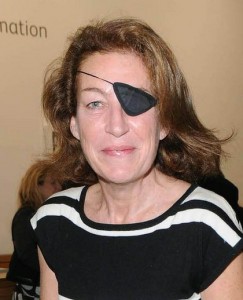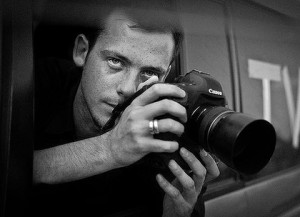By Gordon Rayner, Nabila Ramdani and Richard Spencer
President Bashar al-Assad’s army was so determined to silence reporters who were telling the world about the relentless killing of civilians in the besieged city of Homs that they pledged to “kill any journalist who set foot on Syrian soil”.
Colvin, 56, the Sunday Times correspondent, died with a French photographer, 28-year-old Remi Ochlik, when they were fired on as they tried to flee a makeshift press centre that had suffered a direct hit from a shell.
Witnesses said they were killed by a rocket-propelled grenade as they emerged from the ruins of the press centre, which was next door to a hospital. Frederic Mitterrand, the French culture minister, said they had been “pursued as they tried to flee the bombardment”.
Before the building was attacked, Syrian army officers were allegedly intercepted by intelligence staff in neighbouring Lebanon discussing how they would claim journalists had been killed in crossfire with “terrorist groups”.
The deaths of the two journalists prompted an international outcry. William Hague, Britain’s Foreign Secretary, said governments around the world had to “redouble our efforts to stop the Assad regime’s despicable campaign of terror”, while Nicolas Sarkozy, the French president, said: “Enough is enough. This regime must go.”
Hours before she died, Colvin had given interviews to several broadcasters including the BBC, Channel 4 and CNN in which she described the bloodshed as “absolutely sickening”.
She also accused Mr Assad’s forces of “murder” and said it was “a complete and utter lie that they are only targeting terrorists…the Syrian army is simply shelling a city of cold, starving civilians”.
Sources in Damascus confirmed that Syrians, including Mr Assad, would have been able to watch Colvin’s broadcasts – a fact that could have sealed her fate.
Jean-Pierre Perrin, a journalist for the Paris-based Liberation newspaper who was with Colvin in Homs last week, said they had been told the Syrian Army was deliberately going to shell their media centre, which had a limited electricity supply and internet access thanks to a generator.
Mr Perrin said: “A few days ago we were advised to leave the city urgently and we were told ‘if they [the Syrian army] find you they will kill you’.
“I then left the city with [Colvin] but she wanted to go back when she saw that the major offensive had not yet taken place.”
Mr Perrin, who went to Beirut from Homs, said the Syrians were “fully aware” that the press centre was broadcasting direct evidence of crimes against humanity, including the murdering of women and children. He said: “The Syrian army issued orders to ‘kill any journalist that set foot on Syrian soil’.”
In Beirut, he was told about the intercepted radio traffic and said it was clear that Mr Assad’s forces knew that there would be “no more information coming out of Homs” if they destroyed the press centre. A video posted on YouTube by opposition fighters purported to show the aftermath of the attack, with two unidentified bodies lying in a pile of rubble.
Reporters working in Homs, which has been under siege since February 4, had become concerned in recent days that Syrian forces had “locked on” to their satellite phone signals and attacked the buildings from which they were coming.
Abu Abdu al-Homsi, an opposition activist, said the Syrian army had cut phone lines into the city and was bombing any buildings where they detected mobile phone signals.
Two other Western journalists, the British photographer Paul Conroy, who was on an assignment with Colvin, and the French reporter Edith Bouvier were wounded in the attack.
Colvin, who had worn a black eye patch since losing an eye to a shrapnel wound while working in Sri Lanka in 2001, was the only journalist from a British newspaper in Homs.
Her editor, John Witherow, spoke of his “great shock” at her death, describing her as “an extraordinary figure in the life of the Sunday Times” who would be “sorely missed”.
He said she “believed profoundly that reporting could curtail the excesses of brutal regimes and make the international community take notice”.
Colvin’s mother Rosemarie said her daughter had been due to leave Syria yesterday after the Sunday Times ordered her to leave because it was so dangerous. “She had to stay. She wanted to finish one more story,” she said. “Her legacy is: Be passionate and be involved in what you believe in. And do it as thoroughly and honestly and fearlessly as you can.”
Rupert Murdoch, who owns the Sunday Times, described Colvin as “one of the most outstanding foreign correspondents of her generation” with a “determination that the misdeeds of tyrants and the suffering of the victims did not go unreported”.
David Cameron said her death was “a desperately sad reminder of the risks that journalists take to inform the world of what is happening and the dreadful events in Syria”. Ed Miliband described her as “an inspiration to women in her profession” and Mr Hague said Colvin was “utterly dedicated to her work, admired by all of us who encountered her, and respected and revered by her peers”.
Colvin, who was from New York but lived in London, was married three times but never had children. She had worked for the Sunday Times for 20 years and twice won the British Press Award for Foreign Correspondent of the Year.
In a report published in the Sunday Times over the weekend, Colvin spoke of the citizens of Homs “waiting for a massacre”. She wrote: “The scale of human tragedy in the city is immense. The inhabitants are living in terror. Almost every family seems to have suffered the death or injury of a loved one.”
In 2010, Colvin spoke about the dangers of reporting on war zones at a Fleet Street ceremony honouring fallen journalists, at which she was introduced to the Duchess of Cornwall.
She said: “We always have to ask ourselves whether the level of risk is worth the story. What is bravery, and what is bravado? Journalists covering combat shoulder great responsibilities and face difficult choices. Sometimes they pay the ultimate price.”



